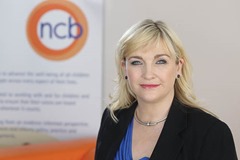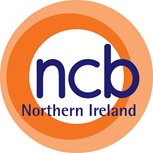Back to basics: Investing in universal services for 0-3 year olds
 Evidence shows that the first three years of a child’s life, and in particular the first six months, are critical to healthy physical, social and emotional development. Emerging policy reflects the fact that investment in the early years maximises outcomes for children and young people. Locally, there is still debate around where this investment should be targeted.
Evidence shows that the first three years of a child’s life, and in particular the first six months, are critical to healthy physical, social and emotional development. Emerging policy reflects the fact that investment in the early years maximises outcomes for children and young people. Locally, there is still debate around where this investment should be targeted.
The Northern Ireland Executive is currently rolling out early intervention services under the Delivering Social Change programme, which provides funding and support for a range of programmes and services for early years. While we recognise and support the role of evidence based parenting interventions, such as the award-winning Incredible Years programme, realistically these programmes do not reach all children and families in need. It is critical that we identify and invest in the core universal services that provide support to all children and families.
A universal service is defined as a baseline service provided to all members of a population. There should be no discrimination, postcode lottery, barriers or stigmatisation associated with accessing the service; all families should have equitable access.
At the earliest stage, basic universal support for new parents and babies comes from their GP, midwife or health visiting team. The Universal Preschool Programme (Healthy Child; Healthy Future, 2010) should deliver a range of services:
• pre-natal care, assessment and support (12 weeks through to full term);
• hospital and home support from medical staff and Health Visitor (birth to 14 days);
• periodic home visits up to two years (at 6-8 weeks; 14-16 weeks; 6-9 months; 1 year and 2 years);
• limited support at early years/group settings up to school starting age; and
• school nursing services (4 years onwards).
But the question arises: is every mother in Northern Ireland actually receiving these universal services?
The Review of Health Visiting and School Nursing (DHSSPS, 2009) identified a need to clearly define the role of Health Visitors as leaders in the wider provision of early years support, alongside the need to increase capacity of the existing workforce in order to meet increased demand. Given the increasing evidence base for the effectiveness of home visiting, we need to build on the existing structure to maximise impact and ensure that all families are adequately supported.
We can learn lessons from our European neighbours. Save the Children’s ‘State of the World’s Mothers’ report (2013) ranks Finland as the number one place in the world to be a mother (with United Kingdom ranked 24th). NCB Northern Ireland is particularly interested in the Finnish provision of strong universal support for families, and has identified the following key factors: multi-disciplinary, integrated, consistent support for families; universal, affordable and flexible childcare choices; and professional development of key early years workforce.
Additional investment in early years services is well under way in Northern Ireland, with the Delivering Social Change Programme, Children and Young People’s Strategic Partnership, Public Health Agency and the emerging Early Intervention Transformation Programme. Informed, collaborative decisions are critical to ensure impact from core universal services is maximised. We must focus on the basic principles of prevention and early intervention, ensuring adequate investment in those services that provide early universal support for all children and families, thus identifying families that require specialist support earlier, as well as preventing issues occurring.
Critically, however, we also need transparent reporting by agencies who are actually delivering universal services as required by statute, and who are delivering other government parenting and family support programmes effectively.
We know that effective programmes plus effective implementation equals improved outcomes. We want to ensure that we are investing money in a way that creates maximum efficiency and best outcomes for all children and young people.
2nd Floor, Albany House
73-75 Great Victoria Street
Belfast, BT2 7AF
Web: www.ncb.org.uk/northernireland
Twitter: @ncb_ni_tweets






